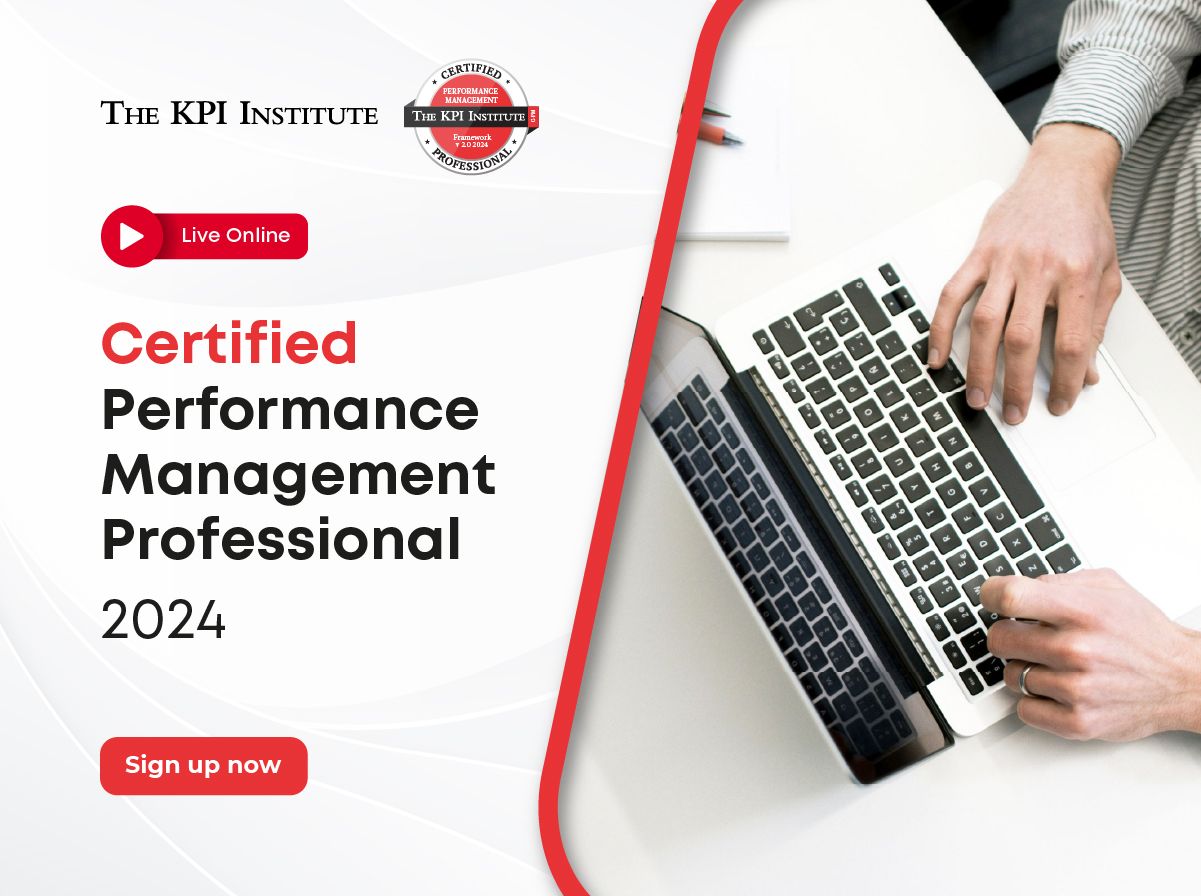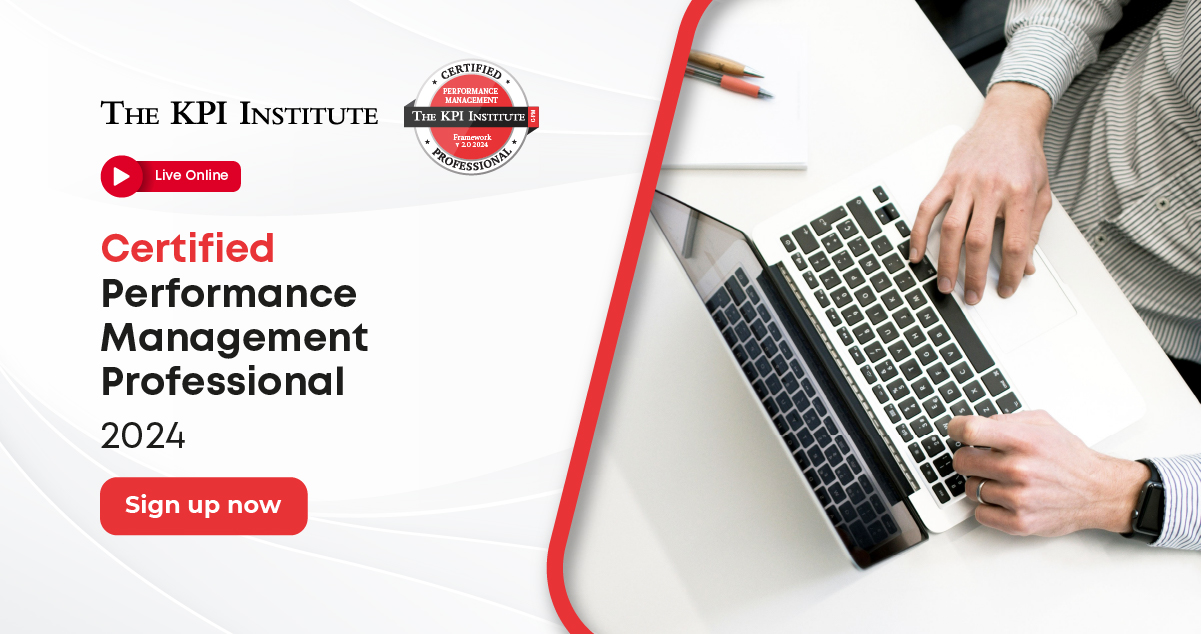
Certified Performance Management Professional: performance growth through transformation
March 6th, 2024 Posted by Kimberly Tilar Certification, Courses 0 thoughts on “Certified Performance Management Professional: performance growth through transformation”
Today’s dynamic corporate world always seeks value-rich opportunities, the most effective management style, and the best way to achieve exceptional performance. Hence, practical knowledge and expertise in managing and improving organizational results are invaluable assets for sustaining a competitive advantage.
Embracing the power of change and achieving high performance with experts’ guidance is crucial to unlocking the full potential of your business.
Course overview
The Certified Performance Management Professional course of The KPI Institute equips professionals with the skills needed to improve performance across all organizational levels. The training curriculum focuses on designing processes that foster a performance culture, aligning with the course’s learning objectives:
- Identify key competencies for developing internal performance management capability
- Design the main tools for a performance management architecture
- Utilize performance data for informed decision-making and strategic execution
- Enhance organizational performance reporting process
- Cultivate enablers for result-oriented organizational culture growth
Benefits and importance
While delving into the six pillars of a successful Performance Improvement System, you gain access to numerous benefits, including:
- Build a strong case highlighting the importance of a sound Performance Management System for organizational growth
- Discover the key enablers for creating a performance-oriented culture
- Reflect on organizational practices and identify necessary improvements for a more mature Performance Management System
- Access ready-to-use Performance Scorecard, Performance Dashboard, and Portfolio of Initiatives in Microsoft Excel format
- Free access to assess your organization’s performance improvement system maturity
Course structure and methodology
The Certified Performance Management Professional course encompasses a three-stage educational process with an expected total duration of 40 hours:
- Pre-course stage: Participants will assess their skills, engage in online discussions, and establish a collaborative learning journey—setting expectations for the training course.
- Core-course stage: Participants can select the live online or face-to-face sessions— any option facilitates experiential learning and fosters human interaction. In this phase, they will also fill in the Individual Learning Map and take the certification exam.
- After-course stage: Here, participants will engage in forum discussions and peruse additional readings. Moreover, they will be able to create an actionable plan for implementing post-training actions and initiatives at this stage.
Course syllabus
The core course comprises 10 learning modules:
- Introduction to performance management
- Trends shaping performance management practices
- Performance management system governance
- The performance management process
- Performance management tools
- Performance enablers
- Learning and improvement
- Corporate performance management
- Departmental performance management
- Individual performance management
Flexible learning options
The course is delivered in various languages and locations, catering to diverse schedules and preferences.
Certification and recognition
Participants will obtain the following certificates (soft copy) upon completion:
- Certificate of Attendance: after participating in the five-day on-site training course
- Certificate of Completion: after completing pre-course activities and passing the Certification Exam
- Certified Performance Management Professional Diploma: awarded upon completing all three-course stages and making full payment
- CPD Certificate of Attendance: provided once participants achieve the Certified Professional Status
Don’t stop now, your time has come. Enroll today in The KPI Institute’s Certified Performance Management Professional course and propel your business to the next level!




